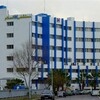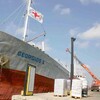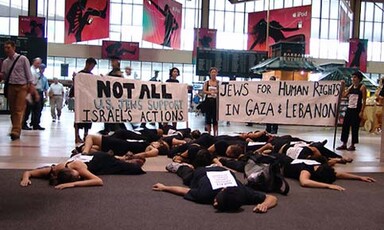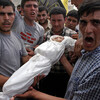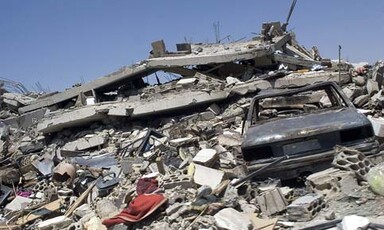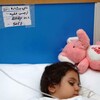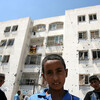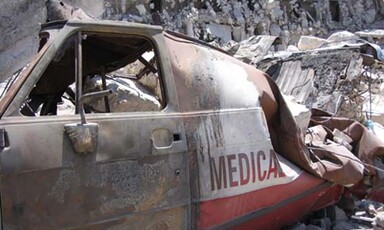
Bombs and tanks in the night
Nablus 3 August 2006
It’s taken me a while to get used to being back in Nablus and my sleep on the first few nights was broken regularly by bangs, explosions and the 4 AM call to prayer. Lying in bed on the first night, I moved my mattress away from the window, feeling too exposed to the soldiers who have a large base at the top of the hill. In 2003 there was safety in my nationality to some degree - the Israeli soldiers were not so likely to randomly shoot internationals. Now, this feeling of protection doesn’t feel quite so strong in the light of what the Israeli military have been doing in Lebanon, indiscriminately killing anyone regardless of nationality, status (civilian or combatant) and age. Read more about Bombs and tanks in the night
